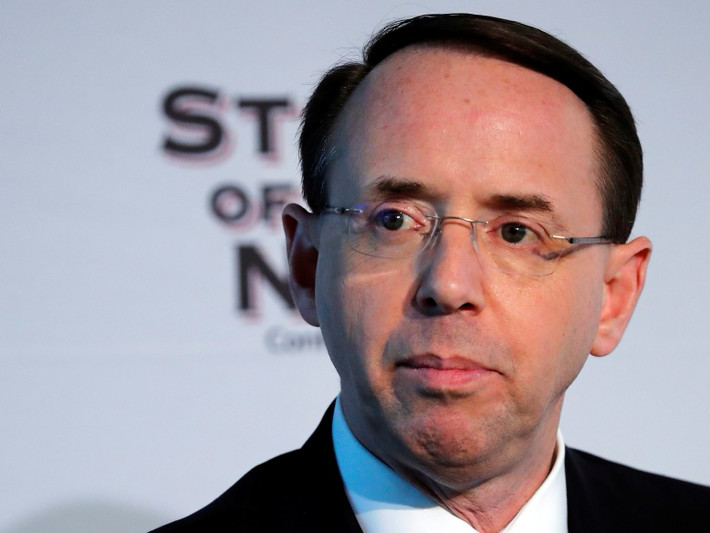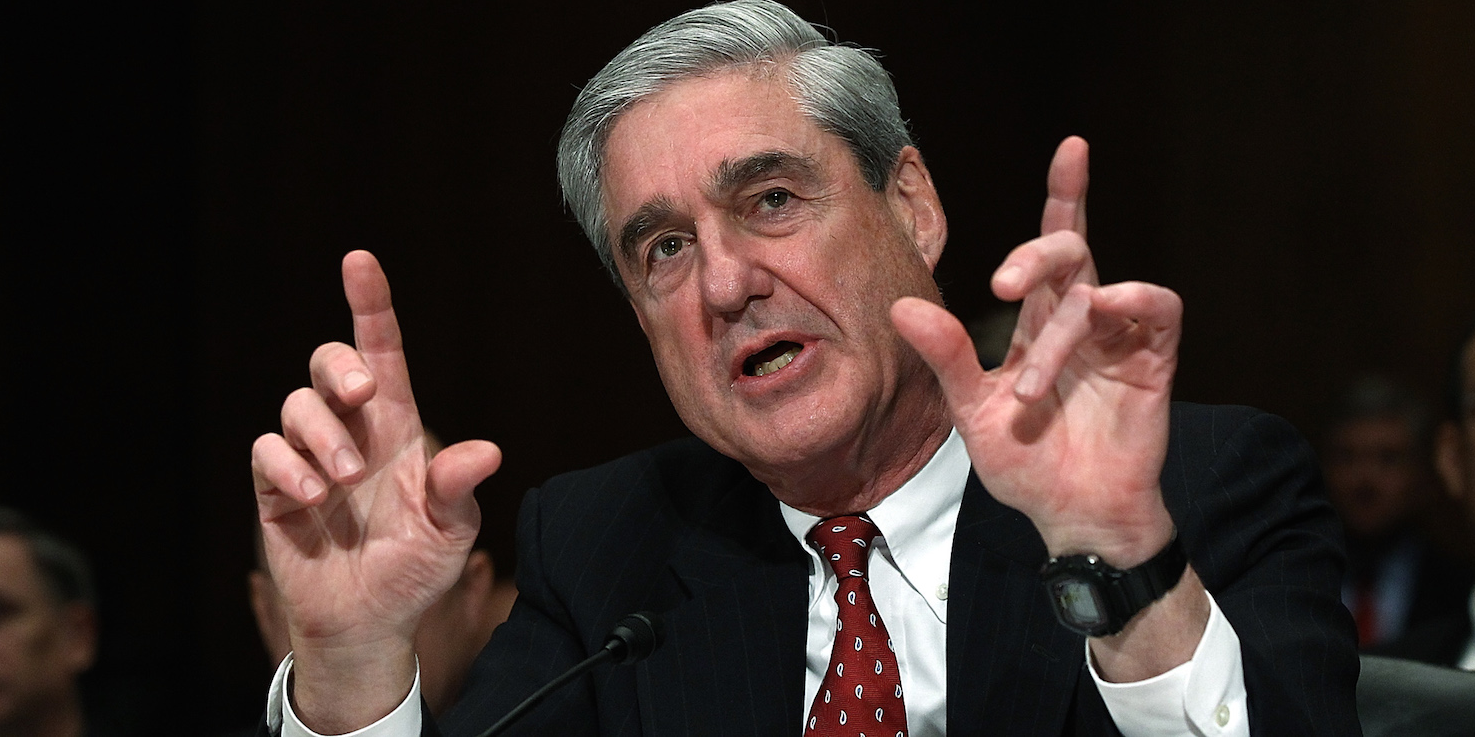- People are worried that President Donald Trump could move to oust Deputy Attorney General Rod Rosenstein.
- Rosenstein oversees Robert Mueller, the special counsel leading the FBI’s investigation into Russia’s interference in the 2016 US election.
- Monday saw momentous developments in the Russia saga, including the ouster of FBI Deputy Director Andrew McCabe.
Perhaps the most momentous day in the Russia investigation in months has renewed concern that Deputy Attorney General Rod Rosenstein could be the next to exit, potentially threatening the probe.
FBI Deputy Director Andrew McCabe resigned on Monday. Sources described his departure to CNN and Fox News as his being “removed.”
Fox News said McCabe left the bureau a day after FBI Director Christopher Wray viewed a classified memo that Republicans say shows surveillance abuse by McCabe, Rosenstein, and former FBI Director James Comey. The New York Times reported that Wray had raised concerns about a report from the Justice Department’s inspector general examining McCabe’s and other senior officials’ actions during the 2016 presidential campaign.
Later Monday, Republicans on the House Intelligence Committee voted to release the controversial memo, giving President Donald Trump five days to approve or deny its declassification.
The Justice Department has warned that releasing the memo, spearheaded by Rep. Devin Nunes, the committee's Republican chairman, would be "extraordinarily reckless" without an official review. But Trump wanted it released, The Washington Post reported over the weekend.
Citing three people familiar with the memo, The Times reported on Sunday that it reveals Rosenstein approved an application to extend surveillance of Carter Page, a former Trump campaign associate, shortly after taking office early last year. The extension showed that the DOJ felt that Page was most likely acting as a Russian agent, the report says.
Trump has '4 in his gunsights'
The Times said the reference to Rosenstein's actions in the memo showed that Republicans might seek to delegitimize Rosenstein in an effort to undermine the investigation into Russia's interference in the 2016 US election and whether the Trump campaign colluded with Moscow.

Trump has for some time been critical of Rosenstein, and The Times said in a report last week that the president had considered firing him.
A CNN report on Friday cited a source as describing Trump's saying things like "let's fire him, let's get rid of him," before being talked out of it.
Rosenstein hired Robert Mueller to lead the FBI's Russia investigation as the special counsel in May, after Trump fired Comey. And since Attorney General Jeff Sessions recused himself from any investigations related to the 2016 presidential campaign last March, Rosenstein oversees Mueller and his investigation - and has the power to fire him as well.
The Times reported last week that Trump ordered the White House counsel, Donald McGahn, to fire Mueller last summer but backed down when McGahn refused to do so.
"Trump has had 4 in his gunsights," tweeted David Gergen, a former adviser to presidents of both parties. "Two down (Comey, McCabe), two to go (Mueller and Rosenstein)?"
'It would be a devastating development'
If Rosenstein were to leave or be removed from his post at the Justice Department and Sessions remained recused, the oversight of Mueller's investigation would fall to the department's third-ranking official, Rachel Brand, who Trump thinks may be more sympathetic toward his point of view on the matter, the Times report suggested.
Trump also would have the ability to nominate a new No. 2 at the DOJ, but the nominee would be likely to face a brutal Senate confirmation process. Republicans hold a slim 51-49 majority, and multiple GOP senators have expressed a desire to maintain Mueller's investigation through its conclusion.
"It would be a devastating development if Mr. Mueller were in any way impeded in completing his investigation," Republican Sen. Susan Collins of Maine said Monday. "It is absolutely essential that he be allowed to complete it."
Meanwhile, House Republicans have insisted that the controversial memo about the FBI and the Justice Department has nothing to do with Mueller's investigation. Democrats have characterized it as misleading.
Republican Rep. Jim Jordan of Ohio, a leading member of the conservative Freedom Caucus, told Fox News on Monday that the memo was "about transparency, it's about the truth."
During a Tuesday press conference, House Speaker Paul Ryan said the memo was "a completely separate matter from Bob Mueller's investigation."
He added that there "may have been malfeasance at the FBI by certain individuals," though he said he thought Rosenstein was "doing a fine job."
He was "hired after this last election," Ryan said.
But others have expressed fear that the investigation could soon unravel.
"Friendly amendment: Protect Mueller AND ROSENSTEIN," tweeted Norm Eisen, who was President Barack Obama's top ethics adviser.
"Trump afraid to attack Mueller directly. The greatest threat right now is that Mueller's current overseer is removed and some crony (say Pruitt) appointed under the Vacancies Reform Act or otherwise to throttle Mueller."
Preet Bharara, the former US attorney for the Southern District of New York, kept his thoughts on the matter much shorter.
"Protect Mueller," he tweeted.











